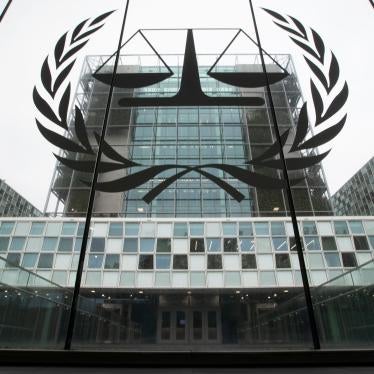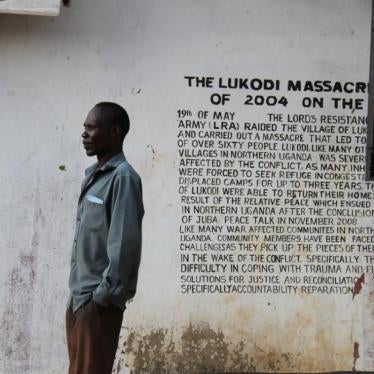The conflicts and crises raging across the globe today in Darfur, Gaza, Democratic Republic of Congo, and Ukraine demonstrate how impunity fuels cycles of violence. As the world confronts these emergencies, it is crucial that impartial and independent justice is delivered to victims of grave international crimes, regardless of where they are committed or by whom.
The Day of International Criminal Justice on July 17 marks the anniversary of the adoption of the founding treaty of the International Criminal Court (ICC). The drive for global justice faces an important test. While different pathways to accountability flourish, justice remains under threat from those who fear accountability and their allies.
Since January 2024, the ICC has issued four public arrest warrants in its Ukraine investigation, unsealed a 2017 warrant in its Mali investigation, and the prosecutor’s request for warrants against three Hamas leaders and two high-level Israeli officials, including Prime Minister Benjamin Netanyahu, is pending.
The principle of universal jurisdiction, which allows national authorities to prosecute suspects of grave crimes regardless of nationality or where the crimes were committed, continues to gain traction in Europe, where most such cases have been brought, and beyond, including new efforts in Argentina and the United States.
Other countries have taken important steps toward credible national justice. In Liberia, efforts are underway to establish a war crimes court, and a verdict is pending in Guinea’s landmark trial on the 2009 stadium massacre.
The International Court of Justice has also emerged as a key avenue to hold states accountable for treaty violations that amount to serious international crimes, including through cases brought by the Netherlands against Syria under the Convention Against Torture, as well as by Gambia against Myanmar, and by South Africa against Israel under the Genocide Convention.
But victims’ rights hinge on governments’ willingness to take responsibility and see these critical processes through. Impartial justice requires consistent political and practical support, as well as the breaking down of double standards that remain persistent obstacles to victims’ equitable access to justice.
The ICC remains under attack from the Russian Federation following the arrest warrant issued against President Vladimir Putin in 2023, and US lawmakers have recently spearheaded efforts to impose sanctions on the court and its officials in light of the prosecutor’s request to issue arrest warrants against senior Israeli officials. While ICC member countries have spoken out in defense of the court, their support is inconsistent across situations. A rush to refer the situation in Ukraine to the ICC following Russia’s full-scale invasion in 2022, while welcome, far outstrips the offers of support member countries have made for other situations, such as Darfur or Palestine.
Inconsistent responses, particularly from Global North governments, feed a dangerous perception that some victims are more deserving of justice than others. They are symptomatic of the double standards that influence the broader international system and often reinforce colonial legacies that fuel underlying power imbalances, which can lead to unequal access to justice.
These double standards should not be accepted as inevitable and need to be overcome if the international justice system is to realize its promise. No less than the legitimacy of the system is at stake.
We mark International Justice Day by sharing the views of colleagues across the global justice movement on the opportunities and challenges they see for international justice. They are crucial reminders of what is at stake, and what can be gained with principled support for impartial justice everywhere.









